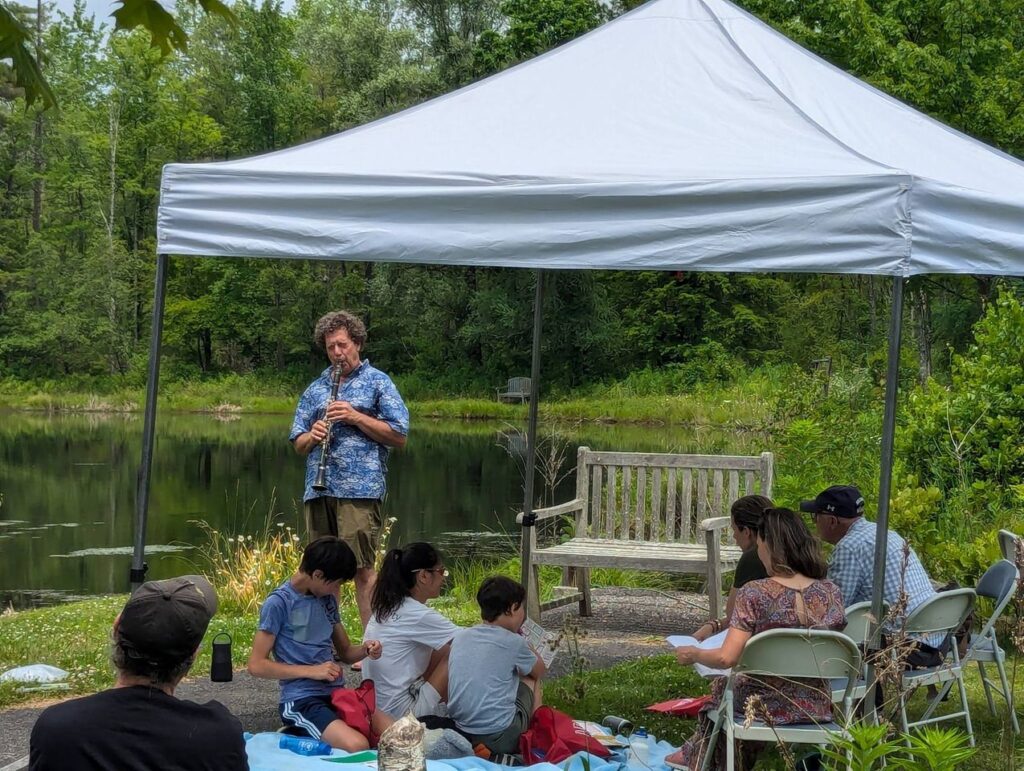As we strive to improve the quality of life for our senior population, innovative approaches like music therapy are gaining recognition for their profound impact on brain and cognitive health. Music therapy, the clinical and evidence-based use of music interventions, offers a multitude of benefits—physically, emotionally, and socially. Understanding why music is therapeutic and the specific advantages it offers to seniors can help caregivers and healthcare providers better support the well-being of older adults.
Why Is Music Therapeutic?
According to American Music Therapy Association (AMTA), music has an inherent ability to evoke emotions, stimulate memories, and create connections. This power lies in the brain's unique response to musical stimuli. When we listen to music, multiple areas of the brain are activated, including those involved in emotion, memory, and motor control. This widespread activation can foster neural plasticity, the brain's ability to adapt and reorganize itself, which is particularly beneficial in mitigating cognitive decline.
Moreover, music's rhythmic and repetitive elements can help synchronize brain activity, promoting a sense of calm and relaxation. The pleasure derived from listening to or creating music can also trigger the release of dopamine, a neurotransmitter associated with feelings of happiness and reward, further enhancing its therapeutic effects.
One study noted, a higher level of overall musical ability was linked to a stronger working memory and emphasized the additional benefit of participating in music as it involves more areas of the brain.
The Importance of Music Therapy for Seniors
For seniors, music therapy can be a lifeline, offering a non-invasive, enjoyable way to enhance their health and well-being. Here’s why it’s particularly crucial for older adults:
Cognitive Stimulation: Music therapy can help maintain and improve cognitive functions such as memory, attention, and problem-solving skills. It can be particularly effective for seniors with dementia or Alzheimer's disease, helping to slow cognitive decline and enhance quality of life. Music can also bridge communication gaps, especially for those with speech impairments or dementia, facilitating non-verbal interaction and connection
Emotional Support: Music can evoke emotions and memories, providing comfort and reducing feelings of anxiety, depression, and loneliness. It can serve as a means of expression for those who may struggle with verbal communication. Music can uplift the spirit, reduce stress, and alleviate symptoms of depression and anxiety. It can provide a sense of normalcy and joy, particularly for those in long-term care.
Physical Benefits: Engaging with music, whether through listening, singing, or playing instruments, can improve physical health by promoting movement and coordination. It can also aid in pain management by providing a distraction and promoting relaxation. Activities such as drumming or dancing can improve coordination, balance, and mobility, which are crucial for seniors in maintaining independence and reducing the risk of falls.
Improved Sleep: Listening to calming music can promote better sleep patterns, which is essential for overall health.
Social Interaction: Enjoying local concerts like those at Noble Horizons and musical events connect the senior population with friends, family and community. Group music therapy sessions can foster a sense of community, reducing feelings of isolation. Singing in a choir or playing in an ensemble can create bonds and encourage social interaction.
Enjoying music for pleasure and/or incorporating music therapy into senior care can be life changing! Therapy can be done in various ways, from formal therapy sessions with a certified music therapist to informal activities like group sing-alongs or listening to favorite tunes. It’s important to tailor the music to the individual's preferences and abilities to maximize the therapeutic benefits.
Music therapy holds immense potential for enhancing the cognitive, emotional, and physical health of seniors. Its ability to stimulate the brain, evoke emotions, and foster social connections makes it a powerful tool in senior care.
At Noble Horizons, we are committed to exploring and integrating such innovative therapies to improve the quality of life for our residents. By harnessing the power of music, we can create a more vibrant, engaging, and supportive environment for our senior community. Our residents and local community love our “Concert on the Horizon” series – where local artists showcase their talents on the Noble Horizon’s campus. There’s nothing more rewarding than watching our residents dancing and singing with friends and family – the smiles are priceless!
For more information about senior living, visit www.noblehorizons.org
*The above should not be construed as medical advice. For more information about cognitive health in seniors, please consult with a licensed medical professional.

